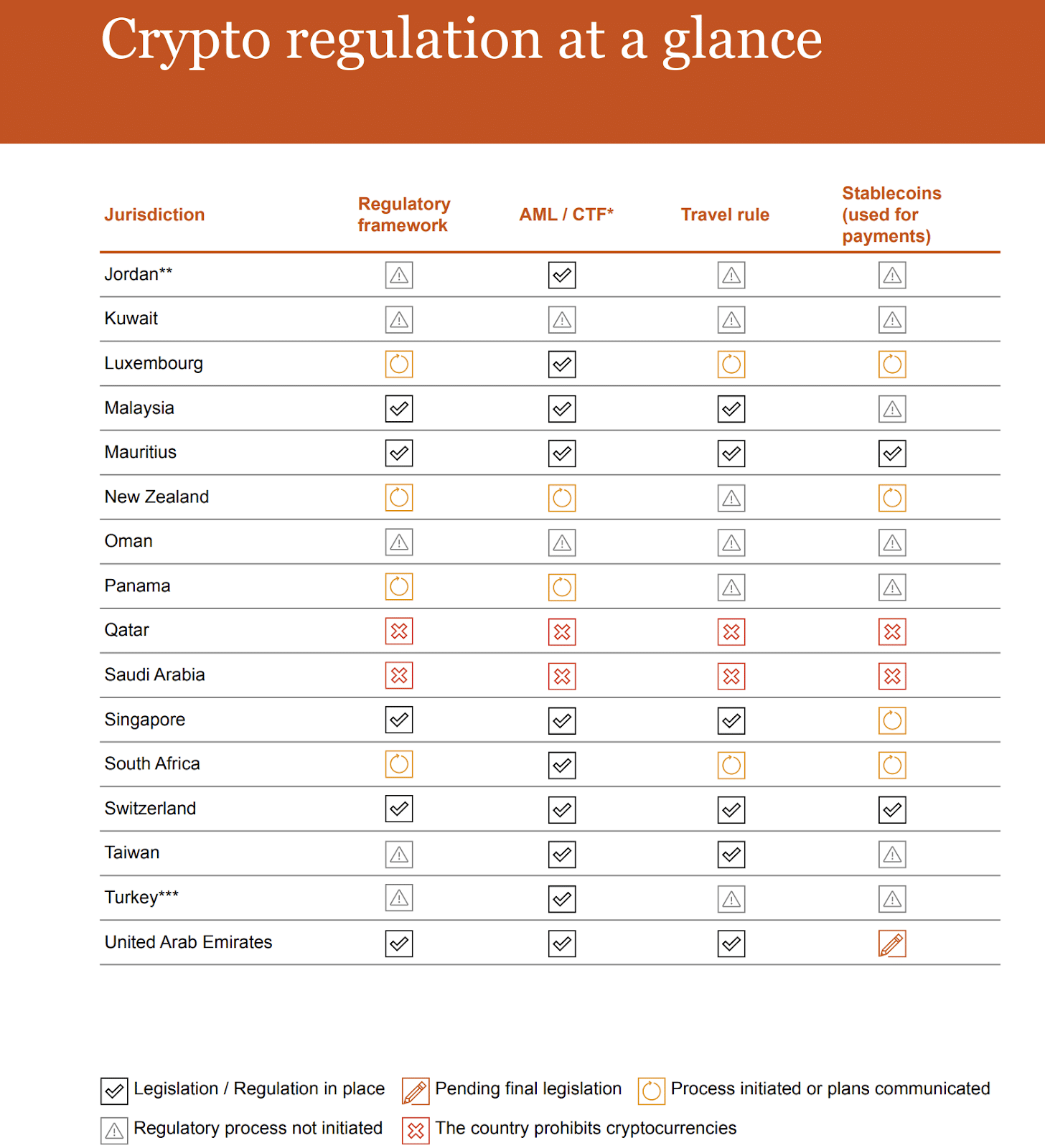UAE Authority Updates Anti-Money Laundering Measures to Implement FATF’s Travel Rule

The Financial Services Regulatory Authority (FSRA), a financial regulatory body in the United Arab Emirates, has released an updated version of its Anti-Money Laundering (AML) and sanctions rules specifically tailored for digital assets.
In an official announcement on December 21, the FSRA expressed its commitment to staying ahead in the ever-evolving financial landscape. The amendments to the AML Rulebook encompass nuanced changes related to digital assets within the framework of the Financial Action Task Force’s (FATF) Travel Rule.
Notably, the revised framework explicitly enforces the FATF’s Travel Rule on digital assets, which requires Virtual Asset Service Providers (VASPs) to share specific customer information, including sender and receiver details, during cryptocurrency transactions.
The primary objective of the FATF Travel Rule is to enhance transparency and traceability in cryptocurrency transactions, making it more challenging for illicit actors to exploit the anonymity of virtual assets for illegal activities.
Additionally, the updated rule is expected to significantly impact firms falling under the purview of the AML Rulebook, addressing evolving challenges and ensuring a more robust regulatory framework in the digital asset space.
In response to the amended rule, Ali Jamal, CEO of Cryptos Consultancy, noted that these changes enhance clarity. He emphasized that the revisions ensure alignment with the UAE’s comprehensive federal regulatory framework to mitigate money laundering and terrorism financing.
Jamal highlighted the importance of these revisions for authorized firms and businesses in finance, considering their broad impact on key stakeholders in the financial ecosystem.
Furthermore, the CEO commended the dedicated teams at FSRA for their continuous, diligent efforts in reinforcing the regulatory landscape. The FSRA’s proactive approach aligns with international standards and underscores its dedication to fostering a secure and compliant financial ecosystem in the UAE.
UAE Progresisve Crypto Sector
In recent years, the UAE has strategically shifted from its historical dependence on oil reserves, actively diversifying its focus towards technology and finance.
Recognizing the potential of digital assets, the government has proactively established a regulatory environment that is both robust and adaptable.
Over the past two years, the UAE Emirates, particularly Abu Dhabi and Dubai, have intensified their regulatory efforts to attract a global array of businesses centered around digital assets.
This approach has attracted substantial talent and investment, positioning the region as a dynamic hub for digital asset-related activities and garnering positive exposure.
According to a recent Statista report, the UAE crypto market is projected to record an annual growth rate of 10.53% between 2023 and 2028, resulting in a total revenue of US$395.8 million by 2028.
Statista predicts that the Emirate region will have 3.15 million crypto users by 2028, and broader permeation will increase from 23.20% in 2023 to 29.85% by 2028.
This data aligns with a December 19 report by the professional network PwC, which ranks UAE as one of the leading countries in embracing cryptocurrency regulations, alongside the United States and the United Kingdom.

PwC’s data highlights that the UAE government has proactively implemented a comprehensive crypto regulatory framework, anti-money laundering regulations, and the travel rule.
Moreover, the country is currently in the advanced stages of finalizing legislation related to stablecoins.







